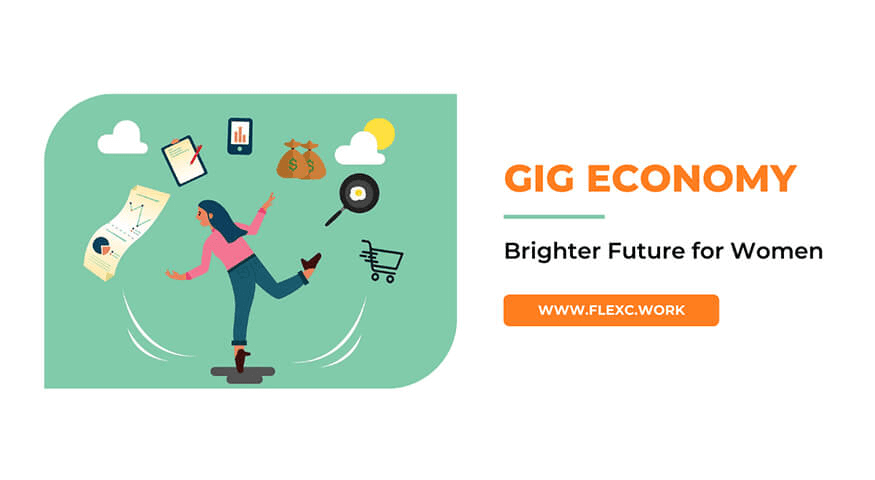GIG Economy: Brighter future for women

Our country has always struggled with low and declining female labor force participation (FLFP) rates, as well as significant gender inequities in the workplace. Now, the pandemic has a higher impact on working women than on working men. Job losses, school closures or caring for the family have prompted several women to pull back from their careers during these trying times. Working women's prospects are seemingly low at the moment, but post-COVID structural changes and increased flexibility may redefine ways that benefit women in the long run.
How is the Gig economy helping women?
Since the coronavirus outbreak, the companies have urged their staff to work from home and are experimenting with an 'alternate workforce model' with freelancers. Organizations are developing a 'GIG Framework' to increase the number of gig workers and decrease their reliance on full-time employees. Women can benefit from more flexible work schedules and more freedom in their work patterns thanks to the gig economy. Indeed, this could be one of the reasons why the number of mothers working as freelancers has risen. Combining a good profession with caring responsibilities is difficult. While balancing the obligations of caregiving, becoming a gig worker has allowed women to continue to improve their careers or at the very least keep their skills up-to-date and maintain relevant experience.
Gig economy is defined by its short-term and project-based nature. It gives women the freedom and independence to work according to their own inclinations. Employee contributions are more interdependent with teams and include more interactive coordination, communication, and shared duties and outcomes. When compared to regular employees, gig workers or freelancers produce fundamentally different types of work. They produce a more immediately distinguishable and discrete individual-based product or service.
Work from home or even regular employment is teamwork and most of the time that proves to be a difficulty for a woman to maintain balance. Face-to-face meeting, shared duties are some of the tasks that can hold a woman back. Gig economy gives women flexibility to maintain a healthy work-life balance. It will help take steps into the future by embracing creative reforms, particularly for women.